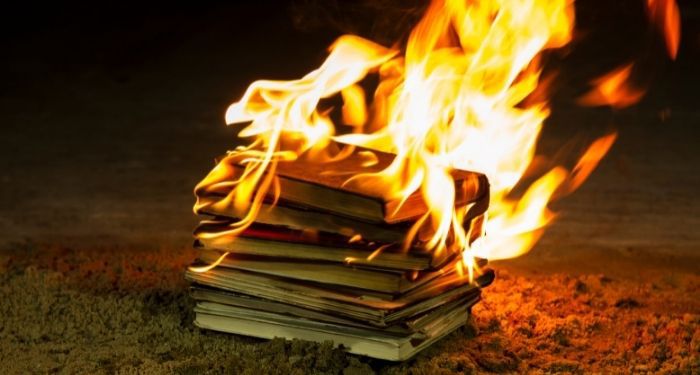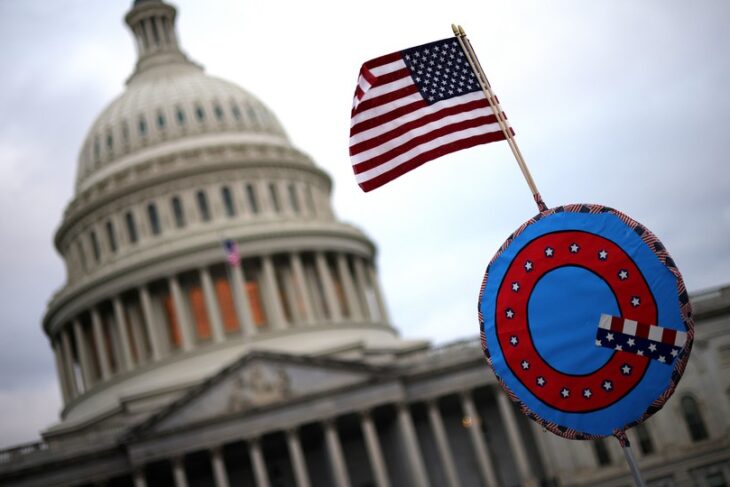
The old man, having found shade on a cushion of grass below an old oak tree, sat down and took out his pipe. After rifling through his pants pockets for his bag of tobacco he stuffed some of its contents into the pipe. Then, from his box of matches, he took out a matchstick and, with a brisk swipe against the box, turned it into a flame. Having lit the pipe, he inhaled and puffed until the embers gave rise to clouds of sweet smelling smoke. He reclined against the trunk of the tree, having put away his fire starting implements. He looked around him at the near and distant trees just as gusts of wind began to rustle their leaves and cause their branches to sway. The old man sighed at the serenity of the scene, and no sooner had he closed his eyes to soak up its ambiance, the crying of a child and the sound of feet running, thrashing through bushes and thumping on the grass, disturbed his moment of solitude. It was his grand nephew, clutching a book bag as a mother would an infant close to her breast.
Upon seeing the weeping, wailing and sobbing child, a boy of about nine years old, the old man, with back now erect, shouted, “Marcus! Marcus! Stop your running, boy! Stop your running! What’s wrong?! What’s wrong?!” The old man, having risen to his feet, moved to the boy with arms outstretched, as one trying to block the path of piglets on stampede or that of startled chickens running helter-skelter. Grabbing Marcus by an arm, the force of the tackle sent them both tumbling to the ground. “Marcus! Marcus! Settle down boy, it’s me, your Uncle Roy! What’s wrong?!” Upon recognizing his grand uncle he embraced him tightly with one arm while still clutching the book bag with the other. “Oh, Uncle Roy! Uncle Roy! They want to burn my books — my books! All of my books!” The old man, having raised himself to his knees, with comforting arms around the boy, bemused at what the boy had said, responded with, “Burning books?! Don’t talk crazy boy! People don’t burn school books! Don’t talk crazy! Now, settle down and tell me what’s going on!”
The old man rose to his feet and then helped Marcus to his, saying, “Come over here”. With his hands on Marcus’ shoulders, the boy still clutching the book bag tightly, the old man guided him to the tree where he had been sitting. After both of them sat down, the old man, wiping tears from the boy’s face, calmly questioned Marcus some more, “Who wants to take your books, son?” His nephew, replied, “The government people who came to the school!” The old man, with a quizzical look, “From the government?!” “Yes!” Replied, the boy, sobbing. “People don’t burn books child, at least, not anymore. That’s what they did in medieval times, and when countries were experiencing periods of great distress. But, not today, not in America.” The boy continued, “They came from the governor, they said. Mostly white men and women, but some Black folks were with them as well. They came to take and burn our books!” “Impossible!” injected the old man, “All of them?” “No!” replied the child, “Only those books having to do with our people and our history.” “Only Afro-American history? You sure, boy?” he asked, “Yes! Yes, Uncle Roy! Yes!”
The old man was in shock. With a blank stare, and with blood draining from his face, he slowly turned his head this way and then that, trying to gather his thoughts. “They were going through our desks, our lockers and our bags.” the boy continued, “Many of us grabbed our bags and those books that were out on our desks, those that we could get our hands on, and we ran like heck! Some of my friends did not make it, as the government people were bigger and faster than us. Even some of the white kids started helping the government people. Can you believe that? Some of them were my friends! But, I know my school and I know the playground well and so, they couldn’t catch me. I ran like heck!” The old man listened, wide eyed, now looking up at the foliage of the tree above him. “They were talking about something called ‘States’ Rights’, saying that the governor had the right to do what he is doing.” At the sound of the words ‘States’ Rights’ the old man was jolted to his senses, mouthing them softly to himself, “‘States’ Rights’. ‘States’ Rights’. Still, even now?”
The old man knew the history behind those words, and of the philosophy which supported them, one which emphasized the rights of individual states to fight what proponents believe to be the encroaching power of the United States government. Yes, he had heard them while growing up, especially from his great grandfather, harkening back to the days of the Confederacy of the old South and of the Civil War. “What they are doing is against The Constitution, Marcus, no matter what they say and what the governor thinks. It is all part of our rights to speak our minds — to express ourselves.” Lifting his head, tears streaming down his cheeks, still seated by the trunk of the tree, the boy then asked, “Uncle, why do the white folks hate us so? Why do they want to treat us as if we are nothing, like we came from nothing? I hate them!” “Don’t you say that, son!” the old man replied. “But, I do! I do, uncle! I really, really do!” The old man turned, went back and sat beside his grand nephew, putting an arm around him. “Hush, Marcus. Hush. We just gotta have faith that everything will turn out alright.”
Marcus, straightened, and turned to his grand uncle, with a perplexed look. “Uncle Roy?” “Yes, nephew”, the old man replied, “I am confused.” “How so?” inquired the old man. “I read about a case of some white men who were arrested, tried and convicted for burning a cross on someone’s property in Virginia.” “I’ve seen a lot of cross burning in my time — a lot.” the old man said, interrupting the boy, “The Klan sometimes does that to scare Black folk”. “Well, uncle,” The boy went on, “the U.S. Supreme Court, after those white men appealed their conviction, said that they did nothing wrong and that they ought to be let out of prison. Those judges said, just like you just said, that it was part of their free speech.” The old man, turning to the boy with knit brows asked, “They let them go free?” “Yes, sir! They sure did!” said the boy. “Are you sure? When was this?” the old man asked. “It was in two thousand and three, I think. The only judge who disagreed with the rest was a Black judge. I forget his name. So, here is my question. How come those white men have the freedom to burn crosses wherever and whenever they want, but us Black kids can’t read what we want, wherever and whenever we want?”
The old man’s face morphed into a look of wonder as he gazed at his grand nephew. “Where did you come from, boy? You are so smart. I did not know that, and yet I ought to have. I am so proud of you, Marcus. I have always been proud of you. You give me and the rest of the family hope for the future.” “But, Uncle Roy”, the boy went on, “you did not answer my question. How come they can burn crosses, to scare us Black folks as you said, but I cannot read what I want to read, especially about our people, and then talk about it with others? Don’t I have freedom of speech too?” The old man sighed, placed a hand on the boy’s shoulder and said, “You sure do son, you sure do. But this world is not level, and even though there are laws in place to protect us, Black people always have to fight much harder than others to reap the fruits of those rights that those laws promised. It is not fair or right, I know, but if people like you don’t keep on reading, and keep on resisting those who would take those rights away, and turn the tables on them, like on those men and women who the governor sent today, then we today and those in future generations will never see any improvement in the treatment our race under the law.”
Looking at his book bag, and then again at his grand uncle the boy asked, “So, what am I going to do now, Uncle Roy? How do I keep these books of mine safe?” The old man laughed, “Marcus, you don’t worry your little head. Us Black folk have had three hundred years of practice studying and outsmarting white folk.” “But, how?” The boy asked. “Now, that would be telling, wouldn’t it?” the old man said with a smile. “For now, I will hold on to those books of yours. You just run along now, and I will see you at home later.”
The boy, having risen to his feet, hesitated. “Go on, son. Trust your old, Uncle Roy. We both come from a race who found ways to get books and to learn to read and to write when the slave masters did their best to keep us ignorant”. “You mean like Frederick Douglass, the ex-slave?” the boy asked. “Yes, just like him and Booker T. Washington. You heard about him too, haven’t you?” “Yes, sir, and about Auntie Sojourner Truth, who couldn’t read a lick, but who had people read the Bible to her, so much so that she was smarter about what was in it than those who read it to her.” The old man laughed again. “Marcus, you are so smart! I see each of them in you! I do! You proved it in more than one way today. Now, go on home, and let me think. I did not develop all these grey hairs of mine for nothing. I will take care of these for you, that is until I can figure out something.” “Okay, Uncle Roy”, the boy replied, “Thank you”, walking off slowly, and thoughtfully upon the grass and through the bushes where he had come a short while earlier before stumbling upon his grand uncle. The old man lit his pipe again, patted the book bag gently, reclined against the trunk of the tree, surveying the forest around him. He felt solitude returning, but not like before.
Things soon got quiet again. The old man sensed that times were changing, and that they were doing so quickly. “I knew that the governor was extreme”, he said to himself, “that he was capable of just about anything, but, so soon? So soon? Banning books? Upsetting school curriculums? Launching raids upon schools? Harassing little children? Confiscating and burning their books? Oh, my lord, what is this country coming to? I must be dreaming. This ain’t Nazi Germany.”
And, the old man was, indeed, dreaming. He would soon arise from slumber upon his bed, within the confines of his own house, from a weekend, afternoon nap. His eyes would reorient themselves to his surroundings. They would reacquaint themselves to the open newspaper sprawled across his chest, with headlines as to the latest shenanigans of the governor of his state. His nightmare found its basis in reality, exacerbated by great anxiety, and by morbid thoughts of ominous things to come. As in his dream, so in his waking moment. He would remember that times were, indeed, changing and at a rapid pace. But, his hope for the future was real, as real as his grand nephew was, and just as real as he was as bright in school, and was as socially conscious as his ancestors were. Yes, there was hope for the future, hope indeed, although very dark storm clouds were brewing on the horizon.



